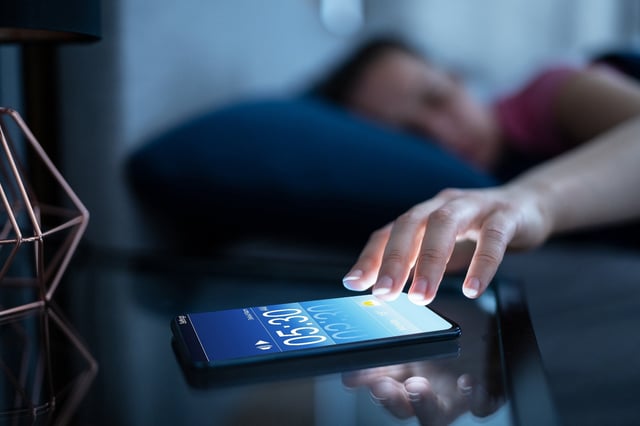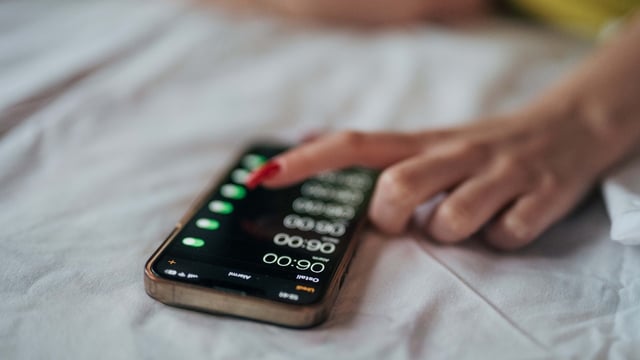Overview
- Over 55% of recorded sleep sessions ended with snooze button use, averaging 11 minutes of delayed wake time.
- Heavy snooze users, relying on snooze more than 80% of mornings, exhibited erratic sleep schedules and snoozed for an average of 20 minutes daily.
- Snoozing disrupts critical REM sleep stages, replacing restorative sleep with light, fragmented sleep and contributing to morning grogginess.
- Snooze usage peaks on weekdays and is most prevalent in the U.S., Sweden, and Germany, while lowest in Japan and Australia.
- Experts recommend setting alarms for the latest possible wake time and avoiding snooze to optimize sleep quality and next-day performance.



